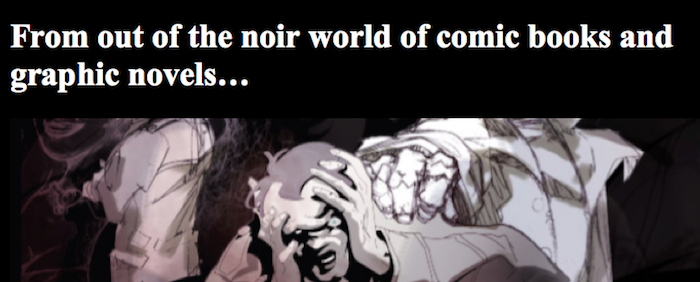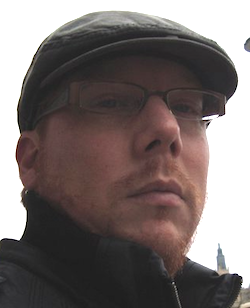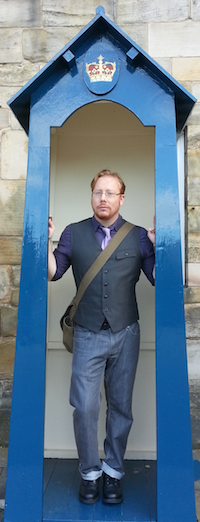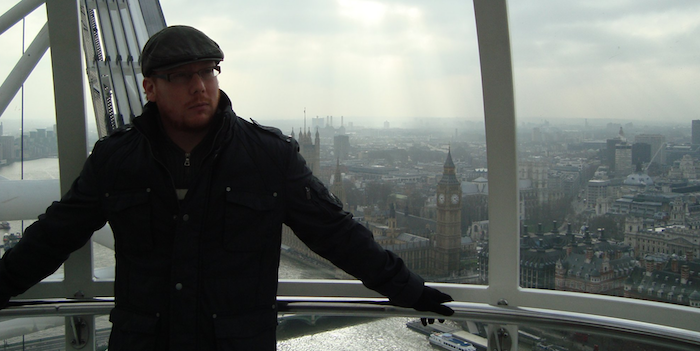
… steps Joshua Gamon – a new force in fantasy writing!
Readers who enjoyed Susanna Clarke’s Jonathan Strange & Mr. Norrell and Neil Gaiman’s Neverwhere will find themselves enthralled by Joshua Gamon’s The Brothers Thanatos. In a fantasy that journeys from the crowded streets of Bombay to a soot-laden London, to Manhattan’s Grand Central Station, to Edinburgh, and to Hell and back again, Max Thanatos and the spirit of his dead brother Charlie encounter fallen angels, Theo Hardeen the brother of Harry Houdini, the vile Aleister Crowley, and even the Devil himself. They battle abhorrent horrors, witch-hunters, the police, and all-comers in an attempt to save Charlie from eternal damnation.
The novel does not drop pace once, and it is this agency’s privilege to represent the author, Joshua Gamon, and to offer The Brothers Thanatos to publishers. It is going to be a best-seller!
Publishers – get in touch with this agency as a matter of urgency, to be first in line for this manuscript!
Joshua has a Master’s degree in Creative Writing from the prestigious University of Edinburgh, and it’s easy to see why. The Brothers Thanatos is his debut novel, though he has been involved in the creation of several works of graphic fiction before striking out on his own. That goes some way towards explaining why this new novel is so visual, evoking almost cinematographic scenes in the minds of readers.
Having tracked Joshua Gamon down to his current whereabouts, we put some questions to him..
Q: Firstly, who is Joshua Gamon? Where were you born, where did you study, where are you now?
 A: I am thirty-eight years old, born in New Haven, CT, and of Russian and British descent. My mother is an artist, my father is retired. I have a BS in English Literature from Towson University, which is mostly known as an actor’s school. I was also awarded an MSc in Creative Writing from the University of Edinburgh in 2014, which is one of the most famous and lauded universities in the world. I left Scotland to move back to Florida to take care of my mom, which is where I am today. In the past, I once taught English in South Korea, starred in a documentary about the USS Indianapolis on the History Channel, built robots with Motorola and competed them on a national level, was almost trapped in a cruise ship fire, and am currently working as a novelist for children and adults.
A: I am thirty-eight years old, born in New Haven, CT, and of Russian and British descent. My mother is an artist, my father is retired. I have a BS in English Literature from Towson University, which is mostly known as an actor’s school. I was also awarded an MSc in Creative Writing from the University of Edinburgh in 2014, which is one of the most famous and lauded universities in the world. I left Scotland to move back to Florida to take care of my mom, which is where I am today. In the past, I once taught English in South Korea, starred in a documentary about the USS Indianapolis on the History Channel, built robots with Motorola and competed them on a national level, was almost trapped in a cruise ship fire, and am currently working as a novelist for children and adults.
Q: What started you storytelling? What gave you the impetus to put pen to paper, and when did you first start to take yourself seriously as an author?
A: When I was young, I tried to emulate the things I loved the most. The first time I saw David Bowie on MTV, I wanted to be a singer and failed famously. Then I tried to play the guitar like Johnny Marr from The Smiths. But then a friend gave me a copy of Dragonlance Chronicles as a birthday gift, which was a fantasy trilogy collected in this one thousand page book. At the time, I wasn’t a reader. But he made me promise to read a little bit at a time. And I kept that promise, and I finished the book over the following summer. When there was nothing left, I started to write my own stories. But they were small, private affairs. When the internet came about, the world opened up. I got into comics, wrote a few, and even had a couple published years later in college. And just a few years ago, I wrote a television pilot for the BBC’s Writer’s Room, and made it into the top ten percent. But, ultimately, it was not sold. All of those experiences were just flings. Once I graduated from University of Edinburgh, I decided to put it all on the line and write.
Q: The Brothers Thanatos seems to occupy a spot somewhere in the field of ‘factasy’ or ‘magical history’, with its much of its action taking place in recognised locations, and with a certain amount of real characters. Where would you position it in literature yourself?
A: Good question! The novel flirts with many popular conventions of horror and science fiction and alternate history, but it’s not aloof with its identity. I see the sub-genre ‘urban fantasy’ spring up a lot, and that’s how I would probably categorize The Brothers Thanatos. But I were to put my own spin on a sub-genre, it would be more akin to pulp fantasy, for it embraces that literary period.
Q: Fantasy fiction is a ‘hot’ genre at present with a lot of writer jostling for top spot. What makes The Brothers Thanatos a contender?
A: I think people are going to be quite surprised by the book. On the surface, the fans of the genre will sate their hunger on the fantastique with its magic, ancient societies, and Lovecraftian monstrosities that slither in the shadows. But the true meat of the story, the part people will really sink their teeth into, is the tortuous journey of Max Thanatos; a man so broken, so utterly lost in despair over the death of his brother, they’ll probably wonder if I’m a sadist in real life! But I’m not. Honest. But this is certainly a world of blood and grime, violence and sorrow. If anything, it channels the spirit of the currently very successful movie Logan, as it’s about a man at the end of his adventures.
Q: Part of the action of The Brothers Thanatos takes place in Edinburgh, here in Scotland. What attracts you about ‘The Athens of the North’? What makes it fertile ground for the setting of a fantasy?
A: I often believe I was born in the wrong century. I always felt drawn to the interwar period of Great Britain, where the traditions of the past were colliding, sometimes violently, with modernity. To me, Edinburgh encapsulates that juxtaposition. At the top of the hill rests the ancient castle, and exactly one mile away is the very modern Parliament building. There are cemeteries next door to cafes. You even have North Bridge that literally and figuratively connects the older city with the new. Edinburgh is a steampunk capital, a medieval world populated by black cabs and power grids. It is majestic and dirty, gothic and modern, dark and serene. To me, it’s a second home. I had to pay my respects.
Q: The novel is written in third-person, but I notice there is a very strong protagonist. Do you identify with Max Thanatos? Are you ever tempted to identify with a character in your fiction? Do you write a strong main character to entice your readers to identify with that character?
A: To me, story is character, character, character. A novel can have a great plot and brilliant action sequences, but if you’re not invested in the characters, then there’s really nothing at stake. It’s more fun to root for someone, to hate or love someone. This is ultimately a story about brothers Max and Charlie, and I am not kind with their lives. I always found myself drawn to frail, broken characters, and these two men are made to suffer dearly. But that also means they have that much more to overcome. I didn’t want to make it easy for them, and that is the allure of their characters. I will say there is a lot of myself in Max, the doubt, the insecurities, but there is also some of myself in Charlie as well with his unbridled optimism. But the beautiful thing about literature is how the readers project themselves onto the characters. Once they read the novel, I would love to hear what they find.
 Q: What’s your writing discipline? Do you sit down and write for a set time each day, or do you write as and when inspiration comes?
Q: What’s your writing discipline? Do you sit down and write for a set time each day, or do you write as and when inspiration comes?
A: I recently read an article about Stephen King, how he writes two thousand words a day, which didn’t seem like a lot to me until I tried it and failed. But this also comes from a man who has been writing two novels a year for the last forty years, big, meaty books. King is a literary savant. So the real question, to me, was not the daily word count, but how many words did he erase to get there? For me, I used to edit as I went—but that was a waste of energy. For anyone who writes, creating is exhausting enough. Editing is its own beast. Then one day, a professor told me to first get it down, then get it right. It was solid advice. Writing is, after all, rewriting.
But my approach to writing is chaotic. There would be days where I would just toil over a single paragraph. Other times, I would slap down pages of new content, only to erase it all the following day after coming up with a better way to tell it. I would love a passage, hate it, and omit the work only to bring it back again. The worst days involved me sitting on my couch, questioning every word of the manuscript. But I rarely work from an outline. I let the characters surprise me. I’m not for jotting down notes while sipping tea in a café. I’d rather spend that energy on the book. When I do dialogue, I first have to understand how each person sounds. Sometimes I would envision famous actors playing the parts. I find it does help. You just have to be fearless to write. During those dark times, at the trough of the process, I just reminded myself there was someone out there who wrote Sharknado. If you believe in your work, someone else will, too.
Q: What are you working on at the moment?
A: At the moment, I have a few projects in the works. A friend from university and I are developing our second children’s picture book about a rabbit who decides to quit being a rabbit. The story is done. And from what I’ve seen from the illustrator, I’m very excited about this book. I think it’s going to be something special.
As for me, I’m currently writing the first draft of my next book, which is about a young rider in the Pony Express and his perilous journey across the Utah Territory. After The Brothers Thanatos, I wanted to compose a shorter, light-hearted adventure about a boy versus nature, to cleanse the palate, if you will.
Afterwards, I have a swashbuckling novel that imagines a conflict between Robin Hood and King Arthur and his Round Table. But since I am a stickler for historical authenticity, it also involves a lot of research.
Q: When you read a piece of writing by another author, what stands out for you? What do you admire most in another author? Equally, what features of literature today do you dislike?
A: I’m a terrible reader. Can I admit that? When I’m writing, I close myself off to nearly everything. I don’t want to be influenced by someone else’s fiction. But, in the past, my heaviest influence as an adult was probably H. P. Lovecraft. I love sensory details in writing, but the man was an artist of mind-creeping, dripping atmosphere. A true master. Another man who wrote beautiful, haunting prose was William Peter Blatty, who just recently passed. I think everyone should read The Exorcist.
Intrigued? Want to know more? Itching for a look at the manuscript? Get in touch with us at bookseeker{a}blueyonder.co.uk now!

__________
Header art detailed from The Passenger by Joshua Gamon and Adrian Sibar.
